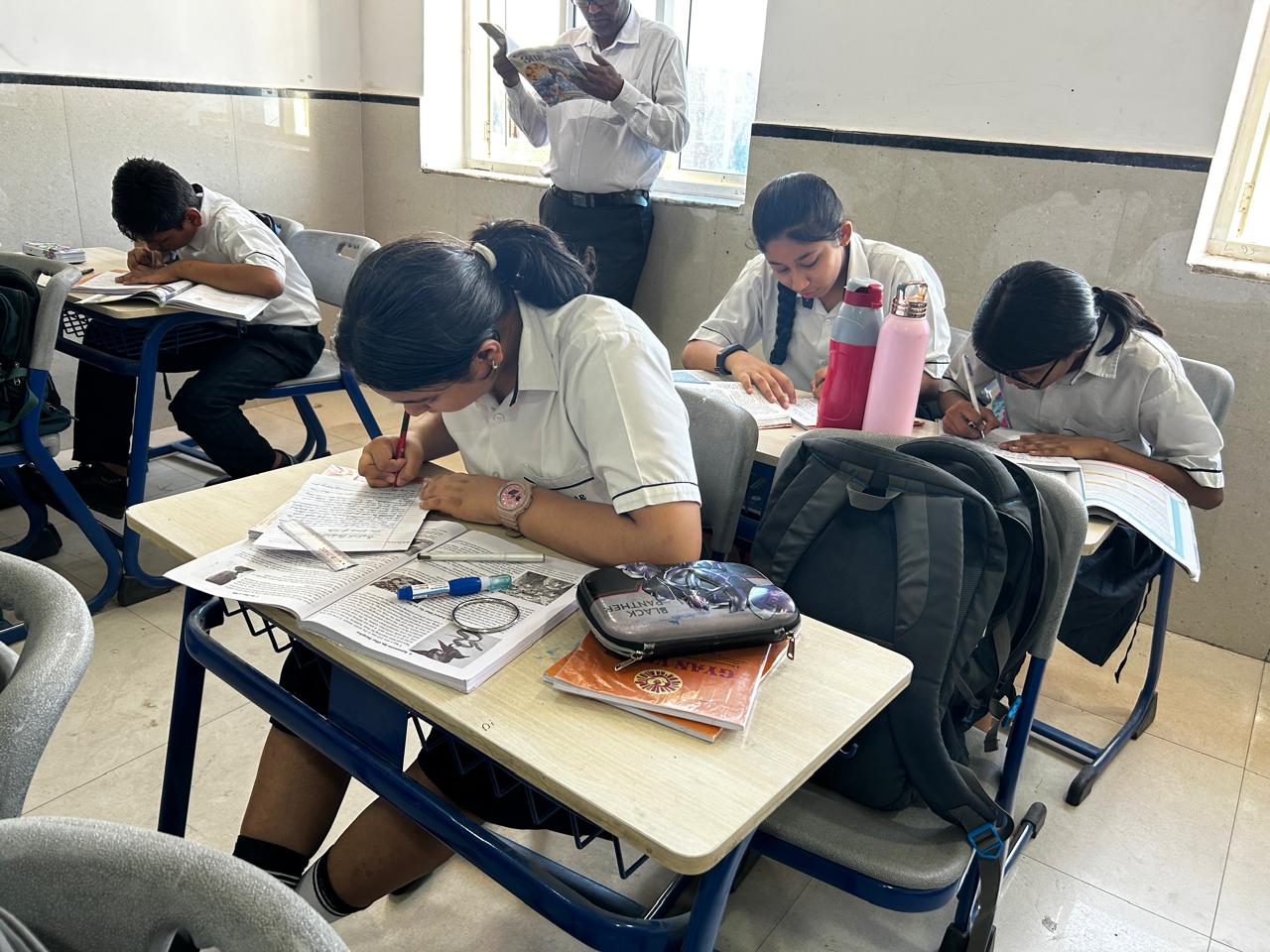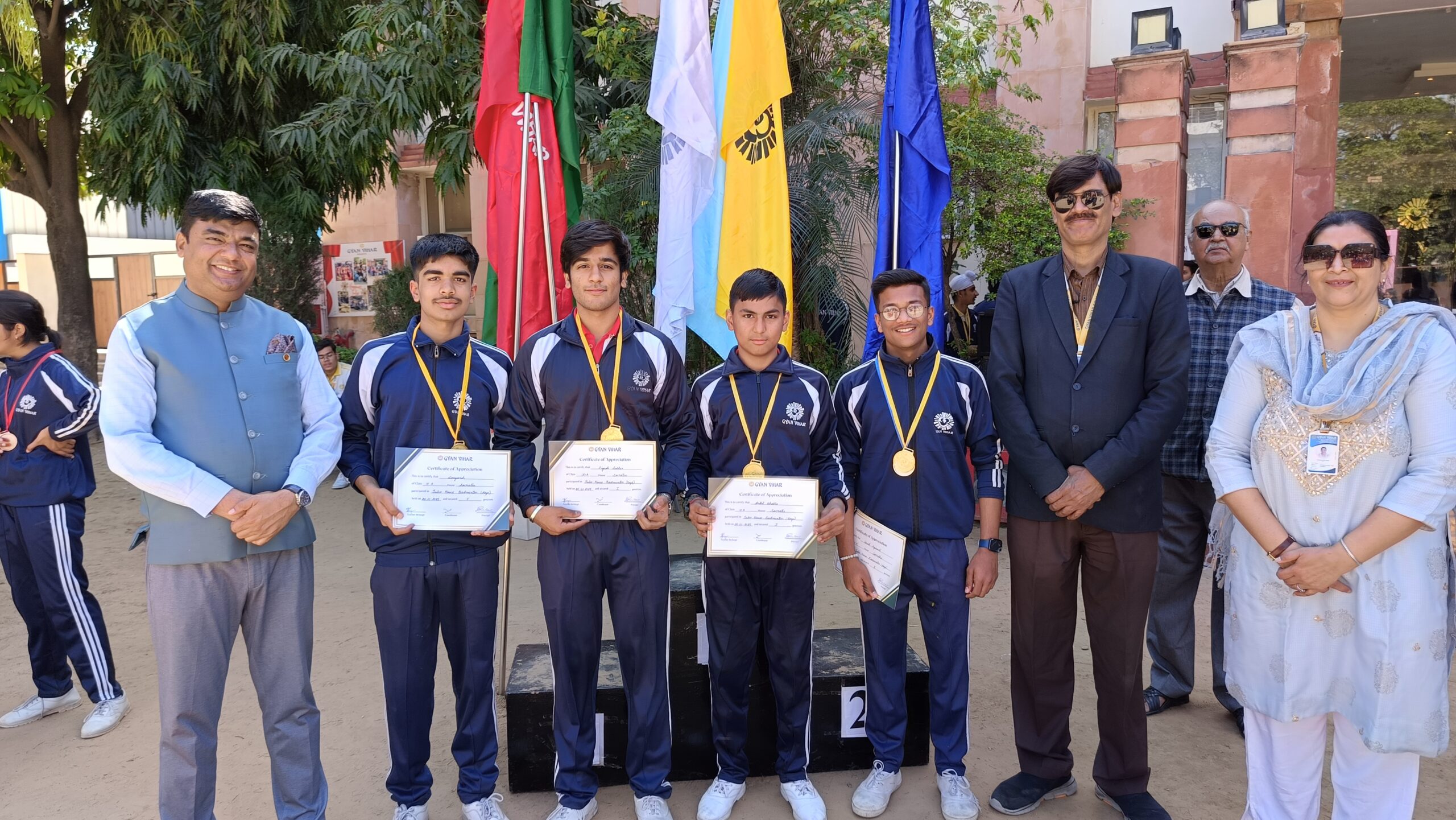Juggling schoolwork, extracurricular activities, and a social life can be a challenge for students. At Gyan Vihar World School, one of the Best Schools in Jaipur, we understand the importance of developing effective study techniques. These techniques equip students with the tools they need to manage their time effectively, retain information efficiently, and excel in their academic pursuits.
This blog post is your guide to developing powerful study techniques that will transform the way you approach your studies. Here, we’ll explore various strategies, from creating a personalized study plan to maximizing information retention.
The Struggle is Real: Common Challenges Faced by Students
Juggling academics, extracurricular activities, and a social life can be a demanding task for students. Here’s a deeper look at the common challenges students face that can hinder academic performance:
- Time Management:
- Competing Priorities: Students often struggle to balance the demands of schoolwork, extracurricular activities (sports, clubs, music lessons), household chores, and social commitments. This can lead to feeling overwhelmed and difficulty prioritizing tasks effectively.
- Procrastination: The pressure of deadlines and large workloads can lead to procrastination, putting off tasks until the last minute. This results in rushed studying, poor information retention, and increased stress.
- Unrealistic Expectations: Students may set unrealistic goals for themselves in terms of how much they can accomplish in a certain amount of time. This can lead to feeling discouraged and overwhelmed.
- Concentration and Focus:
- Digital Distractions: The constant barrage of notifications, social media updates, and the lure of online games can significantly hinder a student’s ability to focus on their studies.
- Multitasking: Students often try to multitask, studying while checking their phones or watching TV. However, this divided focus leads to lower quality studying and poorer retention of information.
- Unorganized Study Environment: A cluttered or noisy study environment can make it challenging to concentrate and absorb information effectively. Background noise, a disorganized desk, or uncomfortable furniture can all contribute to difficulty focusing.
- Ineffective Study Habits:
- Passive Learning: Many students rely on rote memorization, simply rereading notes or textbooks without actively engaging with the material. This approach leads to poor understanding and difficulty recalling information during exams.
- Cramming: The pressure to perform well can lead to cramming for exams, studying large amounts of information in a short period. While this cramming might get students through the exam, they often forget the information soon after.
- Poor Note-Taking Skills: Ineffective note-taking habits can make it difficult to review material later. Students may struggle to capture key points, organize their notes logically, or use effective abbreviations and symbols.
- Lack of Motivation:
- Difficulty with Certain Subjects: Finding some subjects uninteresting or challenging can lead to a lack of motivation to study and participate in class. This can create a negative cycle of falling behind and feeling further discouraged.
- Unclear Goals: Without clear academic goals and a lack of understanding of how their studies contribute to their future aspirations, students may struggle to stay motivated and focused. Setting SMART goals (Specific, Measurable, Achievable, Relevant, and Time-bound) can provide direction and purpose.
- Lack of Confidence: Students who have experienced past failures or academic struggles may develop a lack of confidence in their abilities. This can lead to a self-defeating attitude and a reluctance to put in the effort required to succeed.
Developing Powerful Study Techniques: A Multifaceted Approach
The key to academic success lies in developing a multifaceted approach to studying. Here are some effective techniques to consider:
- Planning and Organization: Charting Your Course to Success
- Create a Personalized Study Schedule: Develop a weekly or monthly schedule that allocates specific times for studying each subject. Break down large tasks into smaller, manageable chunks to avoid feeling overwhelmed.
- Utilize a Planner or Calendar: A physical planner or an electronic calendar helps you visualize your schedule and track deadlines, appointments, and exam dates.
- Organize Your Study Materials: Keep your notes, textbooks, and study guides organized in a binder or folder system for each subject. This makes it easier to find the information you need when studying.
- Active Learning: Beyond Passive Reading
- Develop Active Reading Strategies: Passive reading (simply highlighting or underlining text) is not an effective way to retain information. Instead, annotate your notes and textbooks, summarize key points in your own words, and ask yourself questions about the material.
- Practice Retrieval Techniques: Don’t wait until the night before an exam to test your knowledge. Use flashcards, practice quizzes online, or create your own study questions to actively recall information and reinforce learning.
- Connect the Dots: Look for connections between different subjects and your own experiences. This will help you understand concepts more deeply and retain information better.
- Optimizing Your Learning Environment:
- Find a Dedicated Study Space: Choose a quiet, well-lit space free from distractions where you can focus on your studies. This could be a bedroom corner, a library, or a study room at school.
- Minimize Distractions: Turn off your phone notifications, silence your social media, and inform others not to disturb you during your dedicated study time.
- Create a Study Routine: Develop a consistent study routine, such as studying for a specific subject at the same time each day. This helps create a sense of structure and promotes better focus.
- Harnessing the Power of Memory:
- Spaced Repetition: Don’t cram everything in one session! Spaced repetition involves revisiting information at spaced intervals. Utilize flashcards or spaced repetition apps to reinforce concepts and improve long-term retention.
- Mnemonics and Mind Maps: Create memory aids like mnemonics (memory devices) or mind maps (visual representations of information) to help you organize and recall key points.
- Practice Self-Testing: Test yourself regularly using practice questions, quizzes, or past exams. This helps identify areas that need improvement and reinforces memory.
- Collaboration and Support:
- Form a Study Group: Studying with a group can be a great way to discuss concepts, quiz each other, and learn from different perspectives. Find a group of classmates with similar learning styles and goals.
- Seek Help from Teachers and Peers: Don’t hesitate to ask questions in class or seek clarification from your teachers during office hours. Clear any doubts you might have to avoid confusion and build a stronger understanding.
- Utilize Online Resources: Take advantage of online resources like educational websites, tutorials, and Khan Academy videos to supplement your learning and gain alternative explanations of difficult concepts. Educational apps and online quizzes can also be helpful tools for self-assessment and practice.
- Prioritizing Well-Being: A Healthy Mind for Academic Success
- Get Enough Sleep: Aim for 7-8 hours of quality sleep each night. Sleep deprivation hinders cognitive function, concentration, and memory.
- Maintain a Healthy Diet: Eating nutritious foods provides your brain with the energy it needs to function optimally. Avoid sugary snacks and processed foods that can lead to energy crashes and difficulty focusing.
- Take Breaks and Manage Stress: Schedule short breaks during your study sessions to avoid burnout. Get up, move around, stretch, or do some deep breathing exercises to de-stress and improve focus. Techniques like yoga and meditation can be particularly beneficial for managing stress and promoting overall well-being.
- Reward Yourself: Set realistic goals and reward yourself for achieving them. This will help you stay motivated and on track with your studies.
Remember, there’s no one-size-fits-all approach to studying. Experiment with different techniques and find what works best for you. Here at Gyan Vihar World School, we believe in fostering a supportive learning environment that equips our students with the tools and strategies they need to become effective learners.
Beyond the Blog: Gyan Vihar World School’s Commitment to Student Success
At Gyan Vihar World School, we go beyond providing exceptional academic instruction. We are committed to fostering a holistic learning environment that equips students with the skills and strategies they need to succeed not only in academics but also in life. Here are some ways we support our students in developing effective study techniques:
- Time Management Workshops: We offer workshops specifically designed to help students develop time management skills and create personalized study schedules.
- Study Skills Seminars: Our experienced faculty conduct seminars on various study techniques, including active reading strategies, memory aids, and effective note-taking methods.
- After-School Tutoring Programs: We provide after-school tutoring programs where students can receive personalized support from teachers and peers in specific subjects.
- Learning Resource Center: Our well-equipped learning resource center offers a variety of resources, including textbooks, reference materials, and online databases, to support student learning.
Empowering You to Become a Lifelong Learner
Developing strong study techniques is an ongoing process. By incorporating these strategies into your routine and seeking support from teachers and peers when needed, you can transform the way you learn and achieve academic success. Remember, effective study habits are not just about excelling in exams; they equip you with valuable skills for lifelong learning and success in any field you pursue.
Gyan Vihar World School is here to guide you on this journey. We believe in nurturing well-rounded individuals with a passion for learning and the skills to thrive in a dynamic world. Let’s embark on this journey together and unlock your full academic potential!







